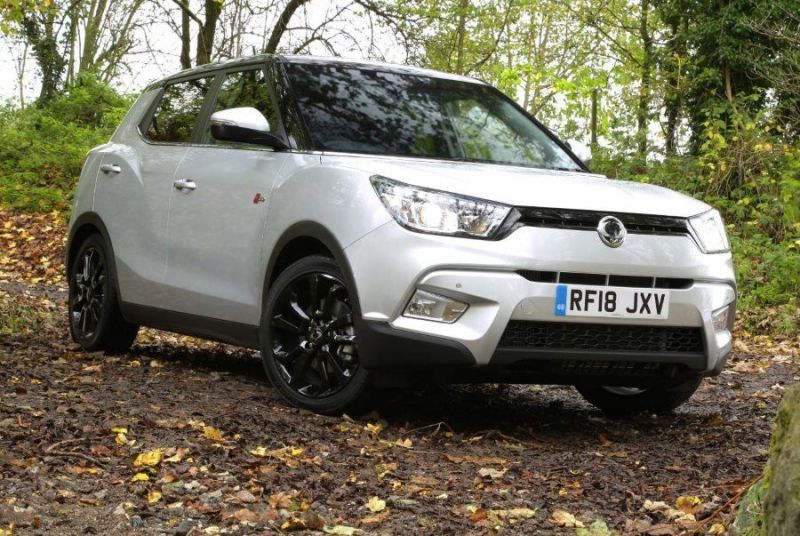About the KGM Tivoli XLV
Last updated Aug 12, 2025The 2021 KGM Tivoli XLV is a small SUV offered in a 5D SUV body style. Used prices in Australia typically range from $27,490 for the ELX variant and topping out at $31,990 for the Ultimate.
There are 2 variants of the Tivoli XLV available in Australia and this generation went on sale in April of 2020.
Engine options include 1.6L turbo diesel common rail (85kW/300Nm) and 1.6L multi-point injection (94kW/160Nm). All variants feature 6-speed automatic transmission. Both front-wheel drive and four-wheel drive configurations are available.
The 2021 Tivoli XLV was offered with a 7 year, unlimited km warranty.
Comparative Rating
Quickly see how this car stacks up against its competition. Select any benchmark to see more details.
2021 KGM Tivoli XLV Price
ELX
| Configuration | Price From* |
|---|---|
| 1.6L, 6-speed auto, 5-door SUV, Diesel, FWD | $29,490 |
| 1.6L, 6-speed auto, 5-door SUV, Petrol, FWD | $27,490 |
Ultimate
| Configuration | Price From* |
|---|---|
| 1.6L, 6-speed auto, 5-door SUV, Diesel, 4x4 | $31,490 |
| 1.6L, 6-speed auto, 5-door SUV, Diesel, 4x4 | $31,990 |
All KGM Tivoli XLV Pricing
2021 KGM Tivoli XLV Specs
See our comprehensive details for the KGM Tivoli XLV
2021 KGM Tivoli XLV Gallery
CarExpert High Resolution Photos of the KGM Tivoli XLV

2021 KGM Tivoli XLV Fuel Economy
There are 3 different fuel economy figures for the KGM Tivoli XLV
The most fuel efficient KGM Tivoli XLV is the ELX with a 6-speed Automatic which is powered by a 1.6L TURBO DIESEL COMMON RAIL and uses 5.9L of diesel per 100km on the combined cycle.
The KGM Tivoli XLV that uses the most amount of fuel is the ELX with a 6-speed Automatic which is powered by a 1.6L MULTI-POINT INJECTION and uses 7.6L of unleaded per 100km on the combined rural and urban test cycle.
| KGM Tivoli XLV | Fuel Type | Combined |
|---|---|---|
| 1.6L, 6-speed auto, 5-door SUV, Diesel, FWD | Diesel | 5.9 L/100km |
| 1.6L, 6-speed auto, 5-door SUV, Petrol, FWD | Unleaded | 7.6 L/100km |
Cost of ownership
What are the running and servicing costs of a KGM Tivoli XLV?
The KGM Tivoli XLV has a recommended service interval of 12 months or 15,000 km, whichever comes first.
2021 KGM Tivoli XLV Warranty
What is the warranty on a KGM Tivoli XLV?
The KGM Tivoli XLV offers a 7 year unlimited km warranty. This is separate to the warranty on offer under Australian Consumer Law which can be greater for certain parts based on what is deemed as a reasonable period of time.
KGM Tivoli XLV FAQs
The cheapest KGM Tivoli XLV is the ELX that starts from $27,490.
The most expensive KGM Tivoli XLV is the Ultimate that starts from $31,990.
The best towing capacity of a KGM Tivoli XLV is offered by the Ultimate which can tow 1500 kg
The largest KGM Tivoli XLV is the Ultimate which measures 1795mm wide, 4440mm in length and sits 1635mm tall.
The most powerful KGM Tivoli XLV is the ELX which has 94kW of power from its 1.6L MULTI-POINT INJECTION engine.
The KGM Tivoli XLV is built in Korea and shipped to Australia.
The heaviest KGM Tivoli XLV is the Ultimate which weighs 2060 kg (kerb weight).
The KGM Tivoli XLV may use different fuel/energy types based on the variant which includes diesel or unleaded.